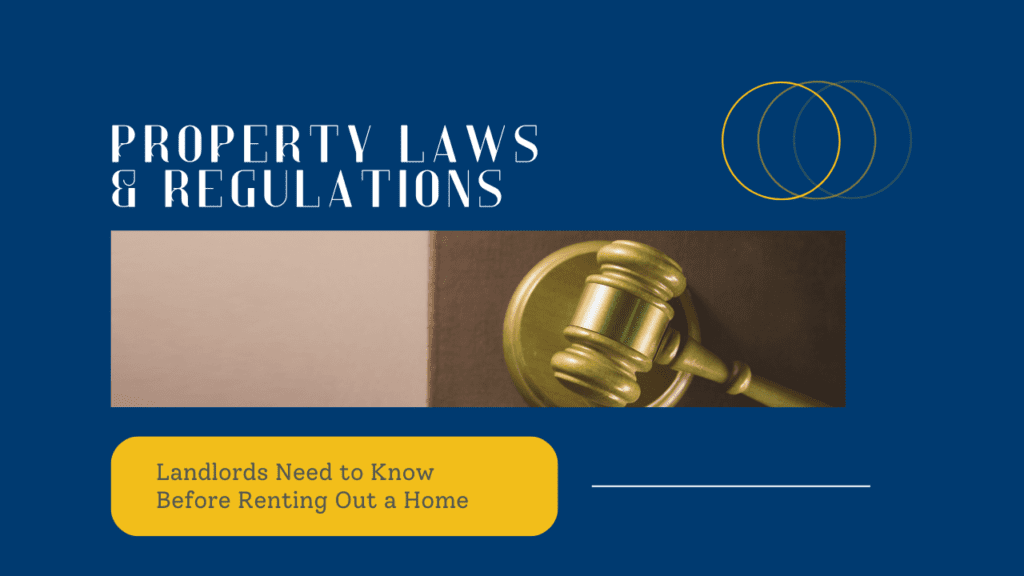
California has some of the strictest rental laws in the country. Landlords often feel like they have far fewer protections than tenants, and it’s important that you educate yourself on the laws before you begin renting out a home.
Ignoring rental laws can be expensive. Mistakes are often unintentional – but they can be expensive, too.
Before you even arrive at the point where you’re leasing and managing a rental property and following all the landlord/tenant laws, you need to know about the property laws and regulations that come with being a landlord.
These laws will depend on the type of property you’re renting out and the length of your lease agreements.
California, as a state, has no specific licensing requirements or permits that a landlord needs in order to rent out a home. However, at the municipal level, there are requirements that need to be met. We manage homes in Benicia and the surrounding areas, and we’re talking today about some of the property laws and regulations that Benicia landlords need to know before renting out a home.
Long Term Benicia Rentals vs. Short Term Benicia Rentals
 First, you’ll have to decide if you’re renting a property for the long term or the short term.
First, you’ll have to decide if you’re renting a property for the long term or the short term.
There are pros and cons to each scenario. We like long term rentals because it provides stability, recurring income, and a lower risk of vacancy. There’s obviously less turnover, and it also provides you with an opportunity to get to know your tenants and develop a relationship.
Short term rentals are popular, however, especially in our area. People are choosing to stay in homes instead of hotels. Sites like Airbnb and VRBO are doing excellent business. Another benefit to short term rentals is that you can use the home yourself for periods of time if you need to.
Here are the different ways to prepare legally to rent out a long term versus short term property:
Long term rental properties do not require any specific permits to get up and running, but anyone operating a business in Benicia needs to have a business license.
This is easy to apply for and the application and information can be found online at the City of Benicia’s website (https://benicia.hdlgov.com/). There’s an annual fee associated with this registration, but you won’t have to worry about inspections or anything like that unless a tenant raises a habitability issue at some point during a tenancy.
Short term rental properties in Benicia are a bit more involved. There’s some extra legwork that you’ll have to do as a landlord if you decide to rent your property out for weeks or even nights at a time.
If you decide you want to rent out your home for a period of less than 30 days, you will be required to obtain a Transient Occupancy Registration Certificate. You’ll need to pay the Transient Occupancy Tax, which is currently 9 percent per night.
Accessory Dwelling Units in Benicia
 There’s still another option, outside of long term and short term rentals.
There’s still another option, outside of long term and short term rentals.
Perhaps you’re thinking about renting out the apartment that sits over your garage or the guest house in the backyard or the in-law suite that’s attached to your home.
This is called an Accessory Dwelling Unit and they’ve actually become pretty hot in recent years, and affordable housing seems more and more difficult for tenants to find. It’s an excellent opportunity for rental property owners too, because they can leverage the property they already own to earn more income and provide more housing.
Often, ADUs are called a second unit; they are self-contained living units on the same property as a primary residence. These units generally include a living and sleeping area, kitchen, and bathroom. They can be detached from or attached to a primary home. Some property owners create an ADU by converting a garage or existing space in a home into a separate living unit.
If you want to rent out an ADU or build a new one, you’ll need to file an application with the city. For an existing property, the process is rather simple because you already have the unit in place. When you’re building from scratch, you’ll have to plan to invest some extra money and go through a few extra steps in getting that property approved.
Once you have completed and submitted your application, you can expect a decision within 60 days of filing your application.
If your ADU meets the requirements of Benicia’s ADU Ordinance, you don’t have to worry about an inspection, design review, or public hearing. You’ll receive approval to rent it out.
Those requirements are not complex. The Benicia ADU regulations specify:
- Maximum size
- Maximum height
- Setback standards
Other factors are also considered, and if your property is within the Downtown or Arsenal Historic Districts, special design standards will be required. However, you can always apply for an exemption if you find yourself unable to meet higher standards in order to rent out your ADU.
California’s Implied Warranty of Habitability
 This is perhaps the most basic property law of all: habitability.
This is perhaps the most basic property law of all: habitability.
Before you rent out your home, it has to be habitable for tenants.
Some of the easy violations of this implied warranty of habitability would be a lack of water, lack of heat, mold, improper ventilation, a gas or sewage leak, pest infestations, and any unsanitary conditions.
Don’t rent your property out unless it is clean, in good condition, and safe for residents.
Running afoul of the law is a terrible way to start your experience as a landlord or rental property owner.
These are some of the most important property laws to consider before you rent out a home. If you’d like to get into more detail about how to protect yourself legally as a landlord in Benicia, please contact us at Krystle Properties.



